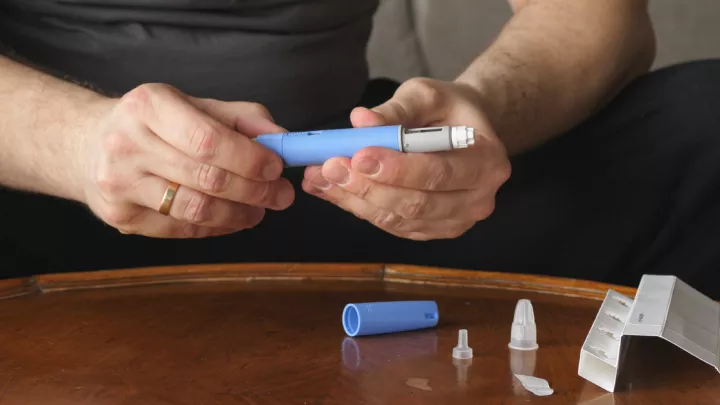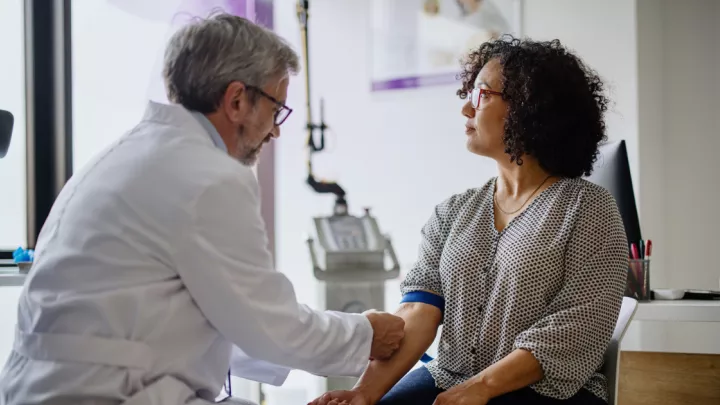Physician assistant, nurse practitioner, doctor or resident? Learn about medical credentials and how to choose a primary care provider

It can be confusing to sort out the many different medical credentials when looking for a doctor. What do the various abbreviations mean, and how do you choose? Here we look at the most common credentialing and board certification, plus tips on deciding which may be best for your situation.
Primary care credentials and what they mean
Doctor of Medicine (MD) and Doctor of Osteopathic Medicine (DO)
When looking for a primary care doctor, you may notice that some are credentialed with MD and others with DO.
MDs and DOs have completed undergraduate degrees, four years of medical school, and three to five years of residency to qualify for board certification. Although there is little difference in approach, a DO may choose to offer musculoskeletal manipulation. A hands-on approach to realigning your body, this kind of manipulation may help treat people with muscle, tendon or back pain to promote healing and increase mobility.
Nationally, the standards for MDs and DOs are regulated similarly no matter where they go to medical school. Both branches of medicine are equal in scope and work to restore or maintain health through the study, diagnosis and treatment of disease or injury.
Nurse practitioner, physician assistant and doctors of nursing practitioner
Advanced practice providers, including physician assistants, nurse practitioners and doctors of nursing practitioners can also see patients for preventive health care and treatment of illness.
Physician assistant (PA or PA-C)
Physician assistants are medical providers with a master’s level education. There is a growing number of PAs going back for their doctoral degree. A physician assistant needs 100 credit hours of continuing education every two years and must take the Physician Assistant National Recertifying Exam every 10 years to maintain their certification. In Nebraska, they are licensed by the Nebraska Board of Medicine and have a supervising physician. PAs work in every specialty and setting at Nebraska Medicine, where they work together with doctors to provide patient-centered care in a team-based medical practice.
Nurse practitioner (NP) and Doctor of Nursing Practice (DNP)
A nurse practitioner is a nurse with a graduate degree in advanced practice nursing, which is completed after they have received their bachelor's in nursing. Depending on the program, they can graduate at a master's or doctoral level. Various nursing organizations offer national certification based on the program they completed. Depending on the credentialing body, nurse practitioners need a specific number of practice hours and continuing education to maintain their certification. In Nebraska, NPs are licensed by the Nebraska Board of Nursing. In some communities, they can practice independently of a physician. At Nebraska Medicine, NPs are a part of a health care team and can provide a full range of medical services.
Resident physicians, board certification and licensure
Resident physicians are doctors (MD or DO)
Residents have finished their undergraduate degree and four years of medical school and are going through a residency training program in alignment with their specialty area. Family medicine requires a three-year residency, but other specialties can take longer, depending on the focus area.
Residents can see patients just like any other physician, but their work is observed by faculty doctors who are board certified, credentialed and privileged within their health care system.
Patients can rest assured that they are being cared for by a doctor and have the added benefit of double focus by a faculty physician overseeing the resident’s work.
Sarah Howard, MD, family medicine residency program director for Clarkson Family Medicine, shares that the practice constantly takes new patients of all ages.
“Residents are certainly some of the best doctors I know,” says Dr. Howard. “They have learned the most up-to-date medicine and have a lot of assistance and support at their fingertips, including from their direct faculty and sub-specialists they train with. As a bonus, seeing a resident also means a patient has more eyes on their case than they would otherwise have.”
Family Medicine and Internal Medicine residents practice at four Nebraska Medicine health centers. Nebraska Medicine partners with UNMC to host residents at Midtown Health Center, Durham Outpatient Center and Bellevue Medical Center. Clarkson Family Medicine residents practice at Old Market Health Center.
Does board certification matter? What about licensure?
Doctors that are board certified have a higher level of training competency, have completed their residency, have passed their board exams, and seek licensure in their specialty area. Those attending a medical school in the United States can seek licensure after one year of residency and board certification after they complete their residency and pass their board exams.
How to decide what kind of provider is best for you
“The best provider is the one you are most comfortable with,” says Jeffrey Harrison, MD, Nebraska Medicine Chair of Family Medicine. “More important than a person’s credentials are how they treat you and manage your health care. Every patient has unique needs and expectations. Find someone that makes you comfortable and gives you confidence when making decisions."
Questions to ask when considering a provider:
- Do they have easy access to the entire spectrum of health care?
- Do they partner with a reputable medical group or system for mutual accountability and oversight?
- What are their credentials? Are they licensed? Board-certified?
- Do they have a cohort of colleagues around them to consult with when needed?
- Are they willing to seek another opinion?
- Do they answer your questions in a way you can understand?
- Are you confident in their expertise and willingness to collaborate with other physicians?
- How extensive is their experience?
Establishing a primary care provider relationship is good for your long-term health. Ready to get started? Click here or call 800.922.0000 to make an appointment.







